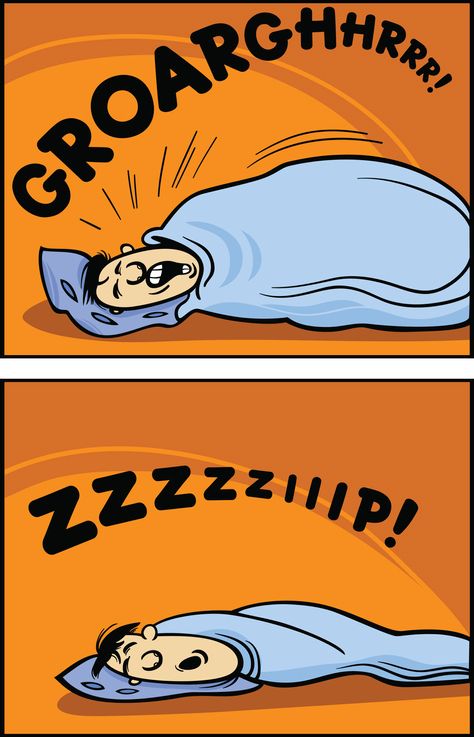- Home
- Trend
- Weight Loss Strategies
- Acne Tips
- Hair Health Information
- Blemish Removal Tips
- Acne Scar Removal Tips
- Muscle Building Techniques
- Intimate Care Tips
- Postpartum Intimate Care
- Eye Bags Wiki
- Tips for Face Slimming
- Secret of Permanent Hair Removal
- Breast Enlargement Tips
- Cure to Snoring
- Marionette Lines
- Skin-Tightening Secrets

免費體驗
Fotona 4D NightLase Snoring Treatment
1 Minute Self-Registration
Date should not be before minimal date
In the symphony of sleep, various factors play distinct roles, influencing the quality of our rest and, consequently, our health. One such factor that often goes unnoticed is stress. Let's dive into the intriguing connection between stress, sleep apnea, and the impact on our overall well-being.
1
Can Stress Make You Snore?

In the hustle and bustle of our daily lives, stress has a profound impact on our sleep, and surprisingly, it may also be linked to snoring. When stress levels soar, our bodies respond by tensing up various muscles, including those in the throat. This tension can create conditions conducive to snoring. The question then arises: Is snoring merely an innocuous noise that accompanies sleep, or does it potentially signify an underlying, more serious issue?
Stress, a prevalent companion in our fast-paced lifestyles, can manifest in different ways, affecting both our mental and physical well-being. One unexpected consequence of heightened stress is its ability to induce muscle tension, particularly in the muscles of the throat. This increased tension may lead to vibrations in the airway, resulting in the familiar sound of snoring.
While snoring is commonly dismissed as a harmless byproduct of a good night's sleep, it may serve as a potential indicator of more significant underlying health issues.
2
Meet Sleep Apnea: More Than Just Snoring

The mention of underlying health issues in the context of snoring refers to the potential association between snoring and sleep apnea. Sleep apnea is a sleep disorder characterised by interruptions in breathing during sleep, leading to temporary pauses in airflow. It comes in various forms, with obstructive sleep apnea (OSA) being the most common.
When individuals snore, it can be a sign of increased resistance to airflow in the upper airway. In cases where snoring is accompanied by periods of complete cessation of breathing, it may indicate the presence of sleep apnea. There are also several elements that might add the possibility of having a bad sleep apnea:
Obesity
Excessive weight gain, particularly in the neck area, can exacerbate obstructive sleep apnea. The accumulation of fat around the neck increases the pressure on the upper airway, making it more susceptible to collapse or partial blockage during sleep. This heightened vulnerability to airway obstruction contributes to a higher likelihood of breathing interruptions. The added strain on the respiratory system intensifies the challenges faced by individuals with sleep apnea, potentially leading to more severe symptoms.
Moreover, obesity is often associated with increased inflammation and other physiological changes that can further compromise airway function. The cumulative effect of these factors not only worsens the severity of sleep apnea but may also contribute to an increased incidence of snoring. As a result, managing weight becomes a crucial aspect of addressing both conditions, with weight loss interventions playing a significant role in alleviating the impact of obstructive sleep apnea and, consequently, reducing snoring.
Soft Palate
The soft palate, a flexible structure at the back of the mouth's roof, plays a vital role in maintaining an open and unobstructed airway during sleep. If the soft palate is elongated or if there's an excess of throat tissue, it can impede the smooth flow of air, leading to increased airway resistance. This heightened resistance can result in vibrations of the soft tissues, causing the characteristic sound of snoring.
In some cases, the obstruction may be significant enough to contribute to the development of sleep apnea. The compromised airflow and increased likelihood of airway blockage intensify the impact of snoring and can contribute to the progression of sleep apnea. Therefore, understanding the link between the soft palate, snoring, and sleep apnea emphasises the importance of addressing structural issues within the throat to alleviate both conditions. Interventions that target the soft palate, such as certain surgical procedures or the use of oral appliances, may be considered to improve airway dynamics and reduce the severity of both snoring and sleep apnea.
3
Feeling These Symptoms? It's Time to Take A Break And Get Restful Sleep

Sleep apnea can manifest through various symptoms, and it's important to note that the severity of symptoms can vary. Here are common symptoms associated with sleep apnea:
1. Loud Snoring: One of the most noticeable signs of sleep apnea is loud and persistent snoring. While not everyone who snores has sleep apnea, particularly loud and chronic snoring may be indicative of an airway obstruction. 2. Pauses in Breathing: Witnessed pauses in breathing during sleep, often reported by a bed partner or family member, are a key indicator of sleep apnea. These pauses may be followed by choking or gasping sounds as breathing resumes. 3. Excessive Daytime Sleepiness: Individuals with sleep apnea often experience excessive daytime sleepiness, even after what seems like a full night's sleep. This can lead to difficulty staying awake, alertness issues, and an increased risk of accidents or errors. 4. Morning Headaches: Waking up with frequent morning headaches is a common symptom. These headaches may be a result of changes in oxygen levels and increased carbon dioxide levels during the night. Difficulty Concentrating and 5. Memory Issues: Sleep apnea can impact cognitive function, leading to difficulties with concentration, memory, and overall mental alertness. This can affect work performance and daily activities. 6. Irritability and Mood Changes: Sleep apnea may contribute to irritability, mood swings, and increased stress. The disrupted sleep patterns can have a significant impact on emotional well-being. 7. Insomnia or Difficulty Maintaining Sleep: Some individuals with sleep apnea may experience difficulty falling asleep or maintaining a consistent sleep pattern due to the disruptions in breathing. 8. Frequent Waking to Urinate (Nocturia): Sleep apnea can contribute to the frequent need to urinate during the night, disrupting sleep and contributing to overall sleep fragmentation. 9. Dry Mouth or Sore Throat: Individuals with sleep apnea may wake up with a dry mouth or sore throat. This can be a result of breathing through the mouth and the increased effort to breathe against a partially blocked airway.
4
Why Stress Snoring (Sleep Apnea) Should Be Treated?

Although snoring seems harmless, untreated sleep apnea can be seriously bad for your health. People with untreated sleep apnea can have trouble sleeping, poor sleep quality, and a higher chance of developing heart disease and underlying health condition:
1. Sleep Deprivation
Sleep apnea disrupts the natural sleep cycle by causing frequent pauses in breathing throughout the night. These interruptions prevent individuals from progressing smoothly through the various sleep stages, leading to a fragmented and disturbed sleep pattern. As a result, individuals with sleep apnea often experience inadequate total sleep duration, contributing to overall sleep deprivation, resulting in sleep disorders. The cumulative impact of nightly interruptions can leave individuals feeling fatigued, irritable, and less able to cope with the demands of daily life.
2. Compromised Sleep Quality
Sleep quality is not only determined by the duration of sleep but also by the ability to cycle through different sleep stages effectively. Sleep apnea interferes with this process, affecting the transition between light sleep, deep sleep, and rapid eye movement (REM) sleep. Consequently, individuals with sleep apnea may experience a reduction in the overall quality of their sleep. The impairment of restorative sleep can hinder the body's ability to repair and rejuvenate, leading to persistent feelings of exhaustion, even after seemingly sufficient hours in bed.
3. Cardiovascular Issues
Prolonged and untreated sleep apnea has been associated with a heightened risk of cardiovascular problems. The frequent disruptions in breathing during sleep can lead to fluctuations in blood oxygen levels and increased stress on the cardiovascular system. Over time, this strain may contribute to the development of hypertension (high blood pressure), a major risk factor for heart disease and stroke. The cumulative impact of these cardiovascular stressors underscores the importance of addressing sleep apnea to mitigate potential long-term risks to heart health.
4. Daytime Fatigue and Impaired Functioning
The disruptive nature of sleep apnea not only affects nighttime sleep but also spills over into daytime functioning. If you did not get enough sleep at night, excessive daytime sleepiness can be a common consequence, as you struggle to maintain alertness and focus. Fatigue can impair cognitive functions such as memory, attention, and decision-making, impacting work performance, academic achievement, and overall quality of life. The persistent challenge of staying awake and alert during the day can further contribute to a decreased overall sense of well-being.
5. Metabolic Consequences
Sleep apnea has been linked to disturbances in metabolic processes, particularly insulin resistance. Insulin, a hormone that regulates blood sugar, may not function optimally in individuals with untreated sleep apnea. This can contribute to an increased risk of developing type 2 diabetes over time. The complex interplay between sleep apnea and metabolic health underscores the need for comprehensive management strategies that address both sleep-related issues and potential metabolic consequences to promote overall well-being.

免費體驗
Fotona 4D NightLase Snoring Treatment
1 Minute Self-Registration
Date should not be before minimal date
5
8 Ways to Make Your Sleep Enemy Gone and Get Better Health Outcomes

Addressing stress-related snoring involves a combination of lifestyle changes, stress management techniques, and, in some cases, professional treatment. Here are some strategies to help reduce stress-related snoring:
1. Manage Stress
To begin, it's paramount to actively reduce stress levels. Incorporate stress-reduction techniques into your daily life, such as engaging in deep breathing exercises, meditation, yoga, or practising mindfulness. These practices can significantly contribute to managing overall stress.
Additionally, take the time to identify and address the specific sources of stress in your life. Whether stemming from work-related pressures, personal challenges, or environmental factors, understanding and mitigating these stressors can have a positive impact on both your mental well-being and, consequently, your snoring tendencies.
2. Improve Sleep Hygiene
Establishing a consistent and healthy sleep routine is fundamental. Cultivate a regular sleep schedule by going to bed and waking up at the same time each day, fostering a sense of routine that promotes restful sleep.
Complement this schedule with a relaxing bedtime routine designed to signal to your body that it's time to wind down. Incorporate calming activities such as reading, taking a warm bath, or listening to soothing music. These practices contribute to creating an environment conducive to quality sleep.
3. Maintain a Healthy Weight
If excess weight is identified as a contributing factor to snoring, consider adopting a holistic approach to weight management. This involves incorporating a balanced and nutritious diet while engaging in a regular exercise routine. Even a modest reduction in weight has the potential to make a significant difference in alleviating snoring.
4. Sleep on Your Side
Adjusting your sleeping position can play a pivotal role in reducing snoring. Experiment with sleeping on your side rather than your back. This simple change promotes better airflow through the airways, potentially minimising the vibrations associated with snoring.
5. Avoid Alcohol and Sedatives Before Bed
Be mindful of the impact of alcohol and sedatives on throat muscles. These substances have a relaxing effect on the muscles in the throat, increasing the likelihood of snoring. It's advisable to limit their consumption, especially in the hours leading up to bedtime, to mitigate their influence on your sleep quality.
6. Elevate Your Head
Modifying the elevation of your head during sleep can contribute to keeping airways open and reducing the chances of snoring. This can be achieved by either elevating the head of your bed or using a wedge pillow designed to provide the necessary support.
7. Give Perfect Medical's Fotona 4D Nightlase Snoring Treatment a shot
A cutting-edge solution incorporating patented NIGHTLASE™ laser technology. Experience the application of precise, low-temperature laser energy to oral tissues in a painless and non-invasive manner. Each session is a quick 20-minute affair, making it a convenient and effective choice for busy individuals who want to stop snoring.
8. Consider Anti-Snoring Devices
In cases where self-help measures may not suffice, healthcare professionals may recommend specific devices to address snoring. Mandibular advancement devices (MADs) or tongue-retaining devices (TRDs) are examples of such interventions. These devices work to keep the airway open, potentially minimising snoring and improving overall sleep quality.
6
Closing Thoughts

In order to get a restful sleep, it's essential to grasp the intricate relationship between stress, sleep apnea, and overall well-being. By comprehending this connection, you can proactively address the symptoms associated with stress-induced snoring. Take decisive steps now to prevent the escalation of these issues into more serious health conditions. Your journey towards better sleep and improved health begins with action today!

免費體驗
Fotona 4D NightLase Snoring Treatment
1 Minute Self-Registration
Date should not be before minimal date
FAQ

1. How does the brain release hormones, and what role do these hormones play in increasing tension, potentially leading to snoring?
The brain releases hormones in response to stress, which can lead to muscle tension, including in the throat muscles. Increased tension in the throat can contribute to snoring.
2. Can drinking alcohol contribute to the release of hormones that increase tension in the nervous system, and how does this relate to the occurrence of snoring?
Alcohol can impact the nervous system and contribute to muscle relaxation, including the muscles in the throat. This relaxation may increase the likelihood of snoring.
3. What is the connection between having a long soft palate, excess fat, and the likelihood of snoring?
A long soft palate or excess throat tissue can obstruct the airway, leading to increased airway resistance and a higher chance of snoring, especially during sleep.
4. How does excess fat, especially around the neck, impact the nervous system and potentially cause snoring?
Excess fat around the neck can put pressure on the upper airway, increasing the risk of breathing interruptions during sleep. This can lead to snoring and other sleep-related issues.
5. Can you explain the relationship between hormones, the nervous system, and the occurrence of snoring, especially in individuals with a long soft palate or excess fat?
Hormones released due to stress can contribute to muscle tension, affecting the nervous system and potentially leading to snoring. In individuals with a long soft palate or excess fat, these factors may further increase the risk of snoring by creating airway obstructions.








